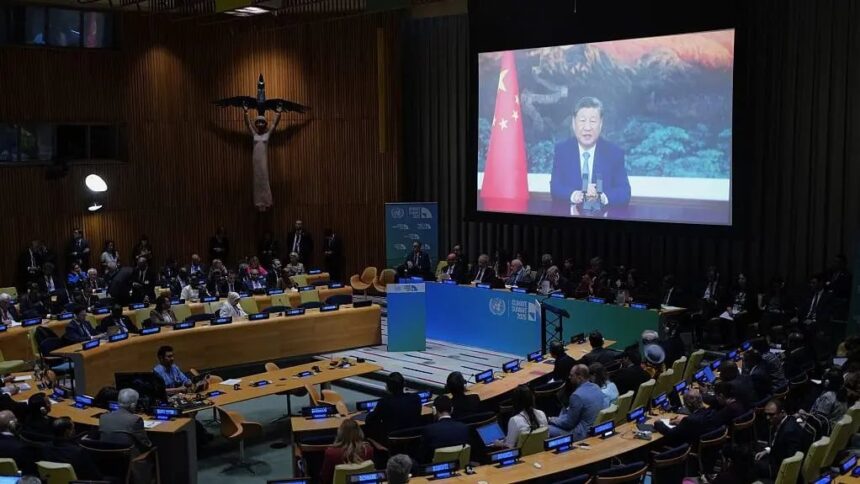In the crisp autumn of 2015, world leaders gathered in Paris with ambitious promises and hopeful rhetoric. The landmark climate accord they signed was heralded as humanity’s best chance to avert catastrophic warming. Ten years later, that optimism has collided with a sobering reality: most nations have failed to meet their Paris Agreement commitments, leaving our planet on a perilous trajectory toward climate breakdown.
The data tells a troubling story. According to the United Nations Environment Programme’s latest Emissions Gap Report, global greenhouse gas emissions have decreased by only 7% since 2015, far short of the 45% reduction scientists determined was necessary by 2030 to limit warming to 1.5°C. This shortfall represents more than statistical disappointment—it translates to devastating climate impacts already unfolding across continents.
“We’ve squandered a decade of opportunity,” says Dr. Elena Montoya, climate scientist at the International Climate Research Institute. “The targets set in Paris were already compromise positions. Failing to meet even these modest goals suggests a profound governance failure at multiple levels.”
The financial commitments have proven equally hollow. Developed nations pledged $100 billion annually to help vulnerable countries adapt to climate impacts and transition to cleaner energy systems. Yet climate finance tracking shows actual contributions have consistently fallen 30-40% below promised levels, leaving critical adaptation projects unfunded in regions facing the most severe climate threats.
Canada’s record reflects this global pattern of unfulfilled promises. Despite Prime Minister Trudeau’s declaration in 2015 that “Canada is back” on climate action, domestic emissions declined just 11% over the decade—well short of the country’s 30% reduction pledge. The continued expansion of fossil fuel infrastructure, including controversial pipeline projects, has undermined Canadian climate credibility on the international stage.
The consequences of this collective failure extend beyond environmental damage. Climate-driven disasters now cost the global economy an estimated $520 billion annually, according to World Bank analysis. These economic shocks disproportionately affect developing nations and vulnerable communities who contributed least to the problem.
“What we’re witnessing is the greatest market failure in history,” explains Dr. Rajiv Sharma, economist at Toronto Global Economics Institute. “The costs of inaction are being externalized onto future generations and the world’s poor, while fossil fuel companies reported record profits last year exceeding $4 trillion collectively.”
The geopolitical landscape has further complicated climate progress. Rising nationalism in key economies has undermined multilateral cooperation, while political shifts toward populism have frequently coincided with climate skepticism and deregulation. The United States’ temporary withdrawal from the Paris Agreement under President Trump exemplified how vulnerable international climate frameworks remain to domestic political winds.
Yet amid this bleak assessment, green shoots of hope have emerged. Renewable energy costs have plummeted far faster than predicted in 2015, with solar electricity now the cheapest form of energy in history according to the International Energy Agency. Electric vehicle adoption rates have surged exponentially, and corporate climate pledges—though often inadequate—have become mainstream business practice rather than radical positioning.
Some nations have demonstrated leadership despite the collective shortfall. Denmark reduced emissions by 32% since 2015 through aggressive deployment of wind power, while Costa Rica consistently generates over 98% of its electricity from renewable sources.
As world leaders prepare for another round of climate negotiations later this year, the Paris Agreement’s tenth anniversary stands as both cautionary tale and urgent call to action. The consequences of continued failure extend far beyond environmental concerns to threaten global security, economic stability, and social cohesion.
The question now confronting governments, businesses, and citizens alike is stark: having failed our first major test of climate resolve, can we marshal the political will and economic transformation necessary to avoid the worst climate scenarios still ahead, or are we witnessing the early stages of an unfolding tragedy we lack the collective wisdom to prevent?














